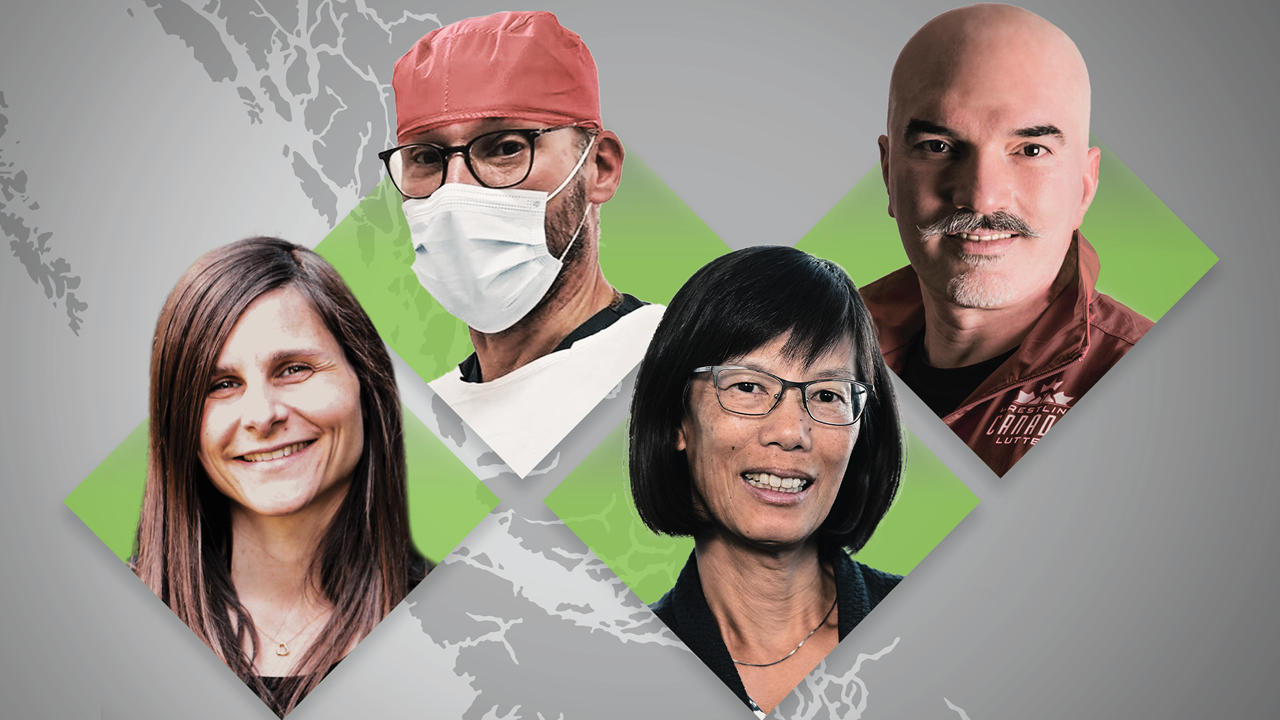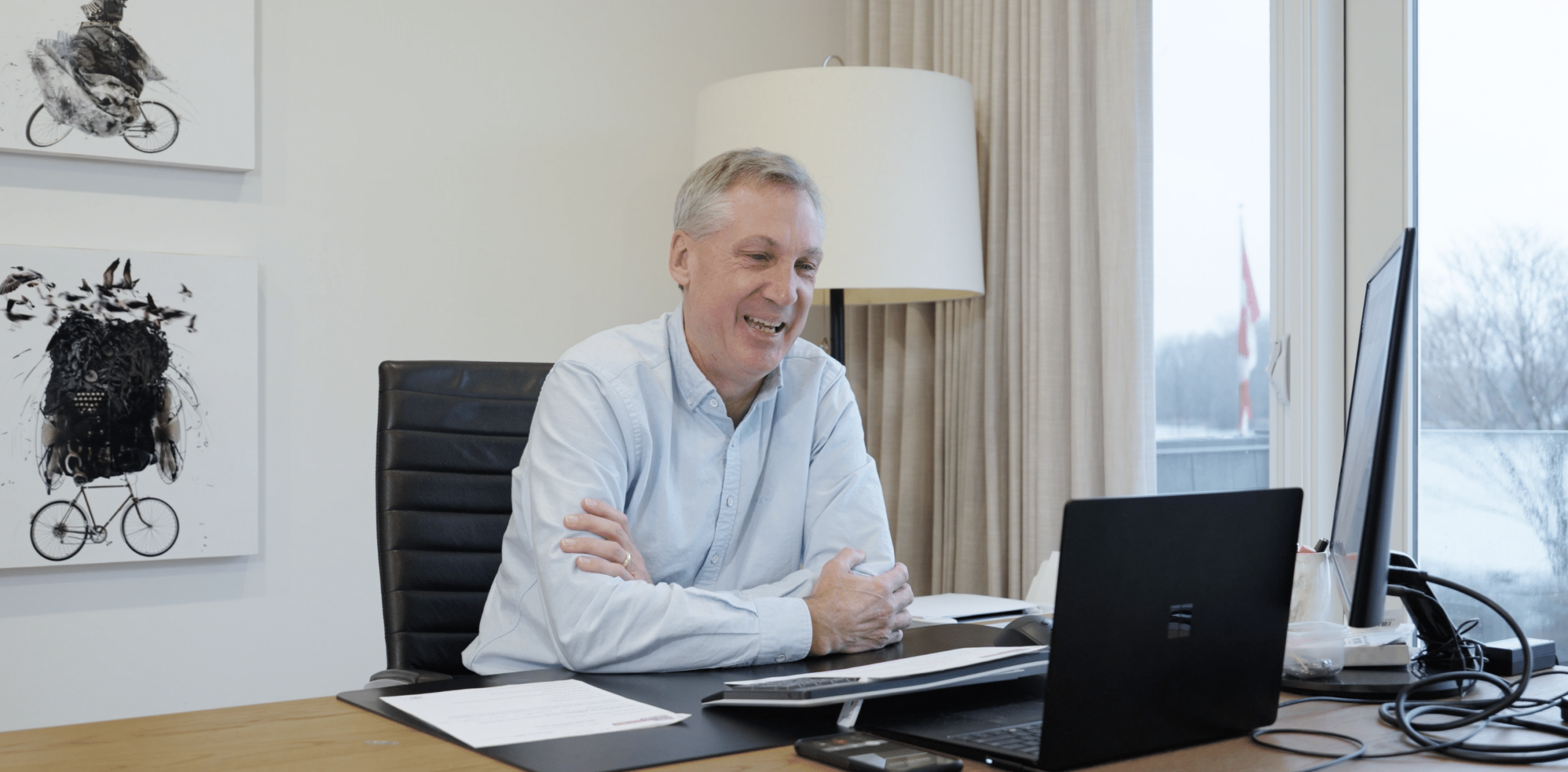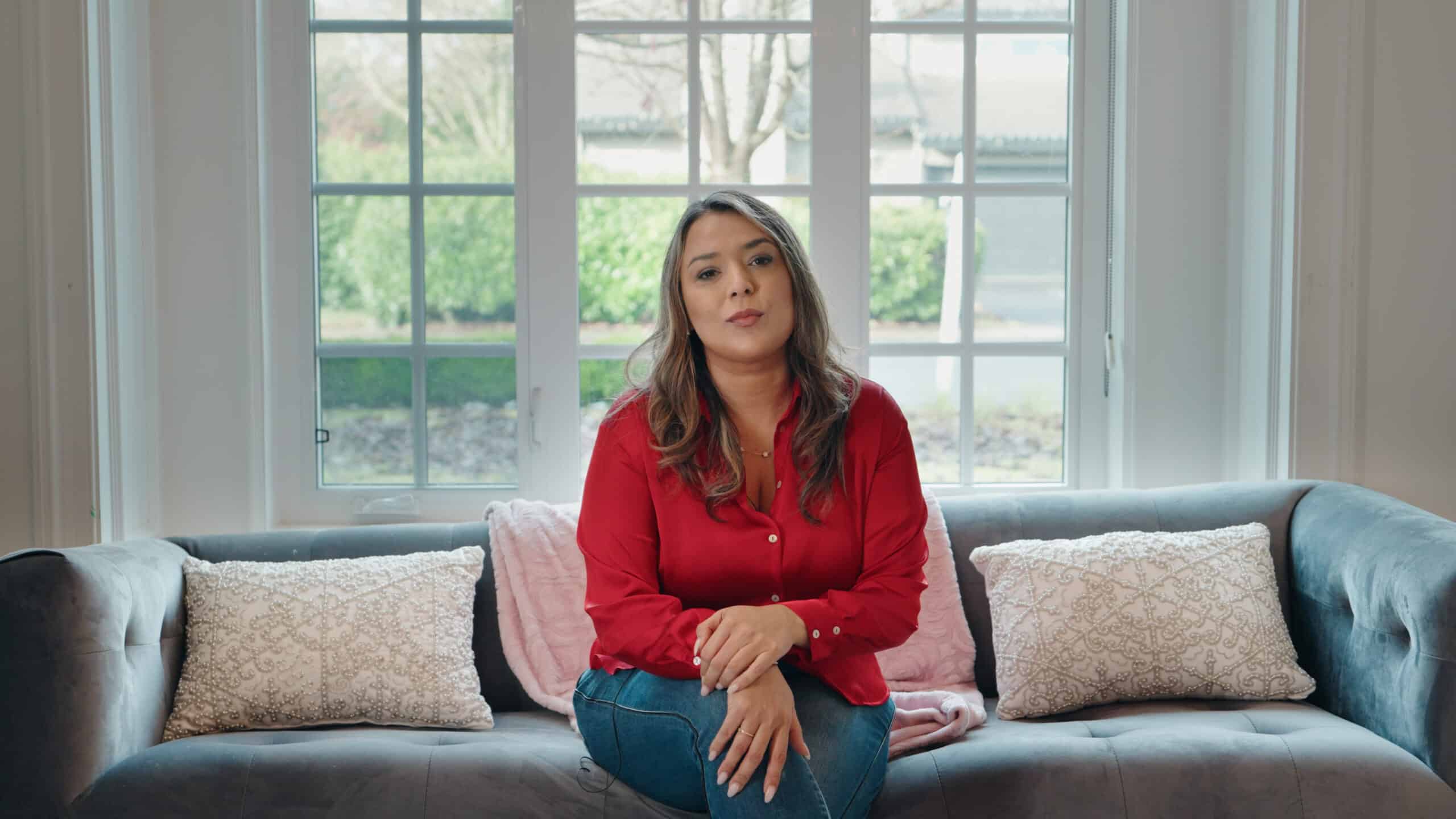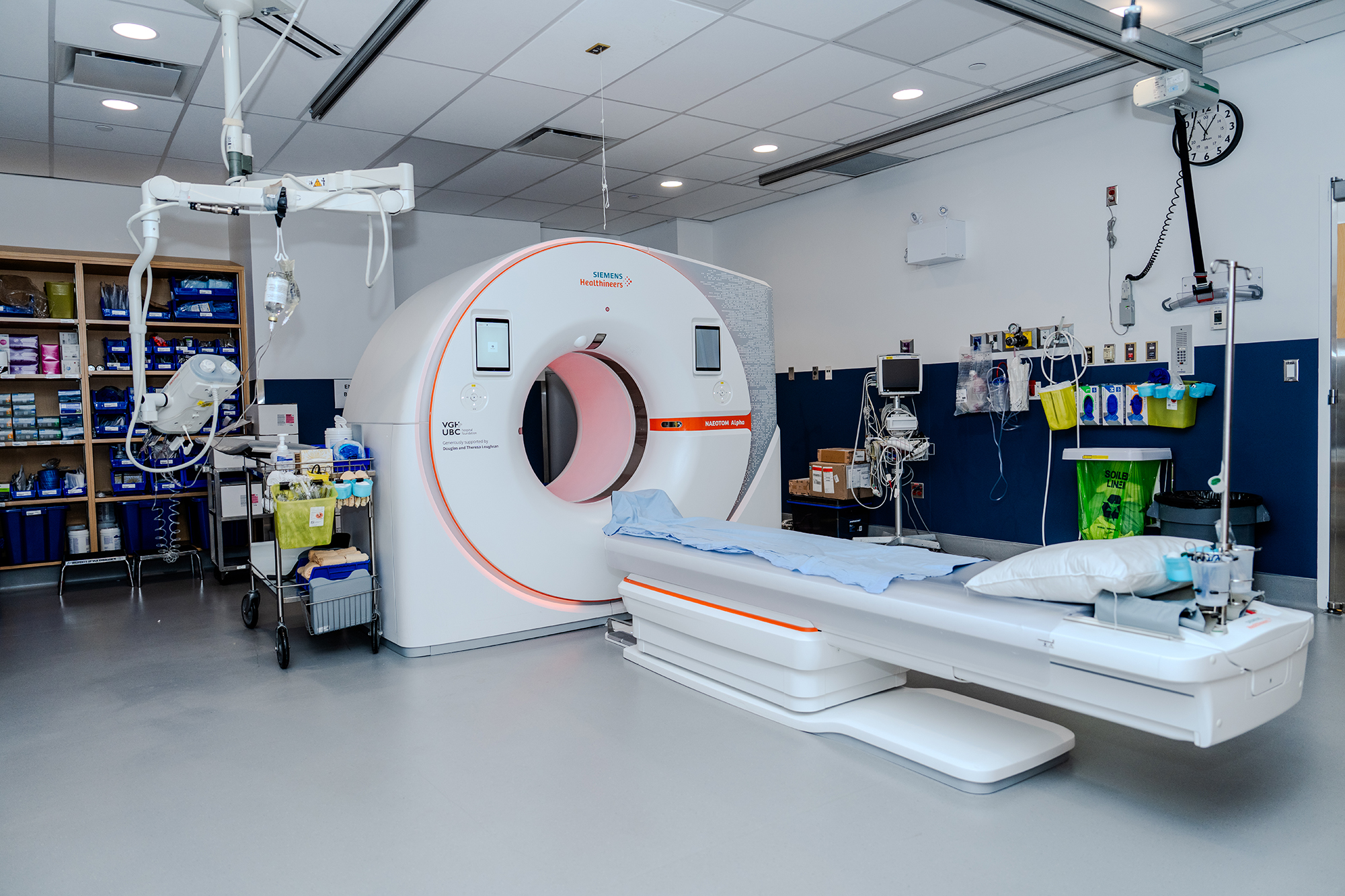Meet some of the world-class doctors caring for the people of BC
VGH & UBC Hospital are BC’s largest teaching hospitals and home to a number of world-leading research centres, advancing medical discovery in areas from healthy aging to ovarian cancer, from spinal cord injury to kidney stones.
As knowledge and thought leaders, our experts impact health care around the globe: aiding in times of crisis, teaching specialized skills and techniques, informing standards of care, medical policies and practices, and uncovering medical breakthroughs.
Each of these expert clinician-scientists is based right here at VGH, UBC Hospital and GF Strong, serving the medical needs of all of us in BC. When the global community needs their expertise, they volunteer their time or extend their research scope to bring the best in health care to the world.
The war in Ukraine mobilizes a volunteer team of North American clinicians to fly across the globe to provide direct patient care and inform burn trauma policy for a country under siege.
An expert in spinal cord injury and international sports physician prepares for his sixth straight Olympic Games.
A team of researchers confirms a standard of care practice for post-stroke patients that is transforming national and international health for aging populations.
A trauma surgeon utilizes local research and modern technology to share VGH’s unique expertise with surgeons around the globe.
Centre for Aging SMART at Vancouver Coastal Health
Dr. Janice Eng is a world-class clinician-scientist who is changing our understanding of ways we can improve treatment and care for aging and chronic disease patients.
As Co-Director of the Centre for Aging SMART (Solutions for improving Mobility, Activity, Rehabilitation, and Technology), Dr. Eng and her colleagues have a shared passion for moving clinical trials into real-world application.
“A lot of research that we develop is very practical that we can actually implement today,” says Dr. Eng.
An example of this is the renowned GRASP exercise program. Based on Dr. Eng’s research and subsequent Canada-wide clinical trials, the program provides the therapist and their patient with a specific series of physical movements and exercises that improves arm and hand movement recovery after stroke.
The GRASP program is so effective, it has officially been adopted into Canada Stroke Best Practice guidelines, and is recognized and implemented in more than 50 countries around the globe today as the standard of care post-stroke.
“That, for us, was fantastic,” says Dr. Eng. “Having our research positively impact the health of our communities. That’s the goal we try and achieve at Aging SMART.”
GRASP is one of many programs that have been, and continue to be, developed at Aging SMART.
The Aging SMART team focuses on improving treatments and care to promote quality of life and function as people age or recover from medical conditions or events such as fractures, falls, stroke, or brain injuries. Research at Aging SMART spans from understanding mechanisms of aging and disease to developing and implementing novel treatments and technologies to restore function and well-being.
Their work today will continue to inform the treatments of tomorrow, helping enhance the care of patients at VGH, GF Strong, and beyond.
Dr. Janice Eng
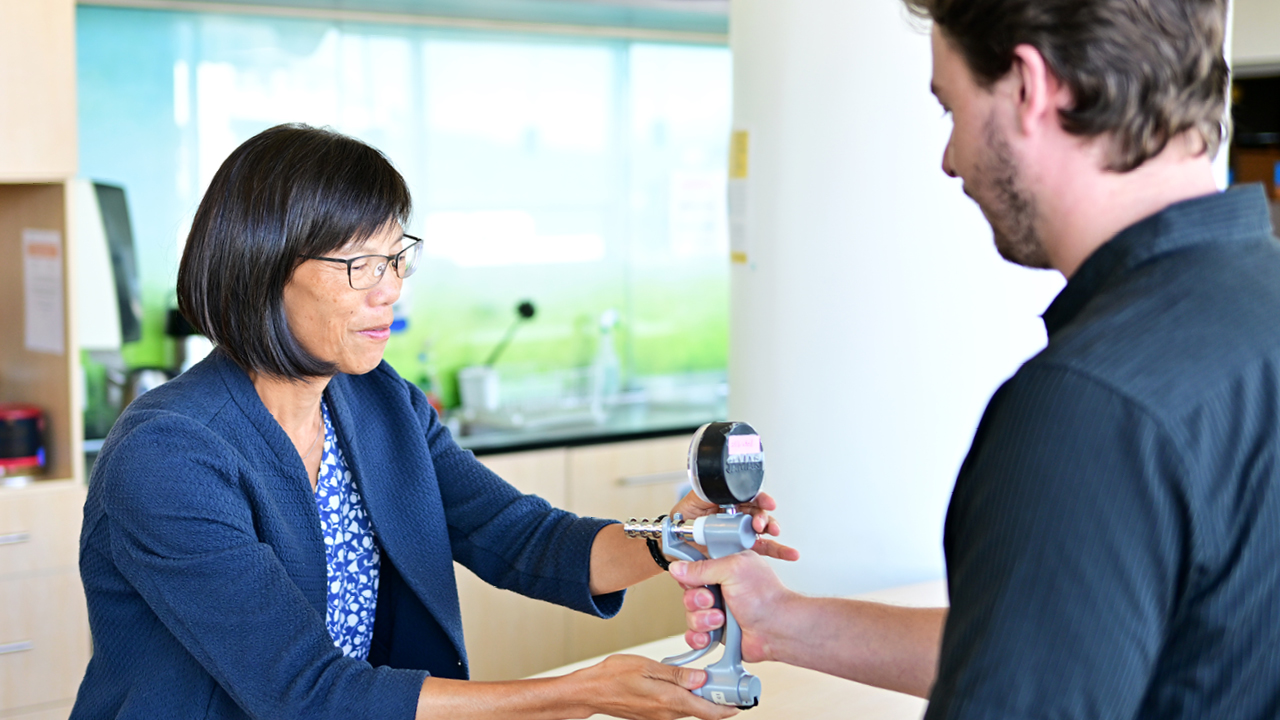
Dr. Janice Eng is the co-Director of the Centre for Aging SMART at Vancouver Coastal Health, which has more than 50 interdisciplinary faculty and 120 trainees dedicated to finding solutions to improve mobility, activity, rehabilitation and health care technology. She is a University Killam Professor and Canada Research Chair in the UBC Department of Physical Therapy at the University of British Columbia. She has training in physical therapy, occupational therapy and biomedical engineering. Her multi-province clinical trials have improved practice guidelines in stroke recovery. Her work in implementation science has enabled her research programs to be adopted locally, as well as around the world.
Bio-sensor expert an Olympic talent
Dr. Babak Shadgan is a principal investigator at the International Collaboration on Repair Discoveries (ICORD), where he is directing the Clinical Biophotonics Laboratory, developing novel wearable and implantable biosensors and collaborating with other superstars such as Dr. Brian Kwon, Canada Research Chair in Spinal Cord Injury and Marcel Dvorak Chair in Spinal Trauma.
As Assistant Professor in the Department of Orthopaedics at UBC, and an International Sports Physician he has presided over the United World Wrestling (UWW) Medical and Anti-Doping Commission. He joined UWW in 2003, and has since directed the medical commission for the wrestling competitions in Athens, Beijing, London, Rio, Tokyo, and will be doing so in Paris in 2024.
While at home in Vancouver, Dr. Shadgan’s time is spent collaborating with other experts at VGH and the Blusson Spinal Cord Centre to develop infrared and implantable bio-sensors to improve recovery from traumatic spinal cord injuries.
He also keeps his medical skills sharp serving on the medical team at the Olympics.
“During the Olympic Games, I lead a medical team that covers the medical care of Olympic wrestlers and officials. I also supervise the doping control of wrestlers during the Olympic Games,” says Dr. Shadgan.
He oversees the medical treatment of these Olympic wrestlers. He ensures they are on-weight, healthy, and intercedes any time someone needs care, particularly during competitions.
His work must be of the highest calibre to ensure the world’s greatest athletes are fit and healthy to compete at their best—something only one of the best sports physicians in the world could accomplish.
“I am honoured that I could improve the safety and health aspects of wrestlers around the world during the last 20 years by applying medical care, preventing injuries, modifying sports regulations, educating athletes and training wrestling physicians,” says Dr. Shadgan. “It is a lifetime achievement for a sports physician.”
Dr. Babak Shadgan
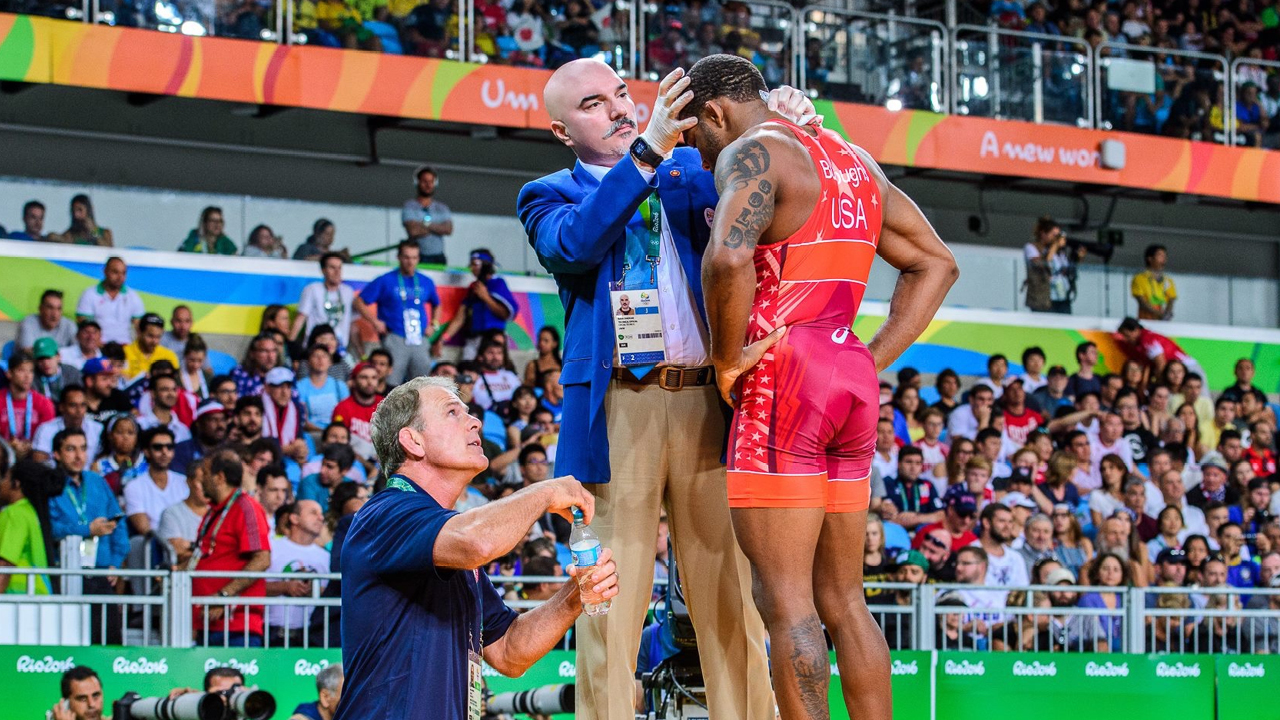
Dr. Babak Shadgan is an Assistant Professor in the Department of Orthopaedics. As an International Sports Physician, he is the President of the United World Wrestling Medical and Anti-Doping Commission. Dr. Shadgan collaborates with numerous researchers, including Dr. Brian Kwon, with whom he investigates applications of implantable sensors to monitoring blood flow in the acutely injured spinal cord, and Dr. Aziz Ghahary, with whom he studies wound healing by infrared imaging. Dr. Shadgan has collaborated with Drs. Mark Nigro and Lynn Stothers on NIRS-based monitoring of bladder muscle hemodynamics, pressure and function in people with SCI.
International crisis aid
Dr. Anthony Papp is the Medical Director of the BC Professional Firefighters’ Burn Unit at VGH. His work at the hospital is divided between direct patient care, clinical research, and administration of the health care teams in the unit.
He sees the worst burns in the entire province, caring for patients hailing from as far away as the Yukon, helping heal any British Columbian in their time of need.
His skill, expertise and knowledge of burn and wound care is second-to-none. In 2022, he was invited as the sole Canadian member of a team of surgeons heading to Ukraine to help burn victims.
“For two weeks I worked in the burn centre in Lviv, which is the Western end of Ukraine about an hour from the Polish border,” says Dr. Papp. “You could see the signs of war there. The government buildings were all either boarded up or sandbagged for protection. The big national treasure statues were all crated. There were roadblocks here and there, soldiers, tanks and so forth. And it wasn’t even an active warzone there.”
Dr. Papp stayed in a safe house with three other surgeons from the US, and would be driven safely to the burn centre where he spent the next two weeks of his life, treating some of the toughest burn cases he had ever seen.
“The burns were in much worse shape than the ones at home,” says Dr. Papp. “Instead of just treating burns, you’re treating infected burns. Infection makes a big dent in your plans, because it means you can’t do skin grafts right away, you have to clean them, apply dressings, and hope they stay clean. So instead of doing two surgeries on someone, you would do maybe six there.”
Aside from the challenges of treating burn injuries from battle, Dr. Papp also saw issues from the lack of protocols and policies in place. Noting no set policies in regards to hand washing, surgeries, resuscitation, nutrition, or pain and infection control, Dr. Papp and his team saw an opportunity.
They compiled a list of recommended protocols, which were then handed to the Health Minister of Ukraine, and if accepted, would become law.
“The goal is to educate, because if we do everything for them and then leave, it’s of no benefit,” says Dr. Papp.
Two weeks later, Dr. Papp returned home, changed forever.
Dr. Anthony Papp
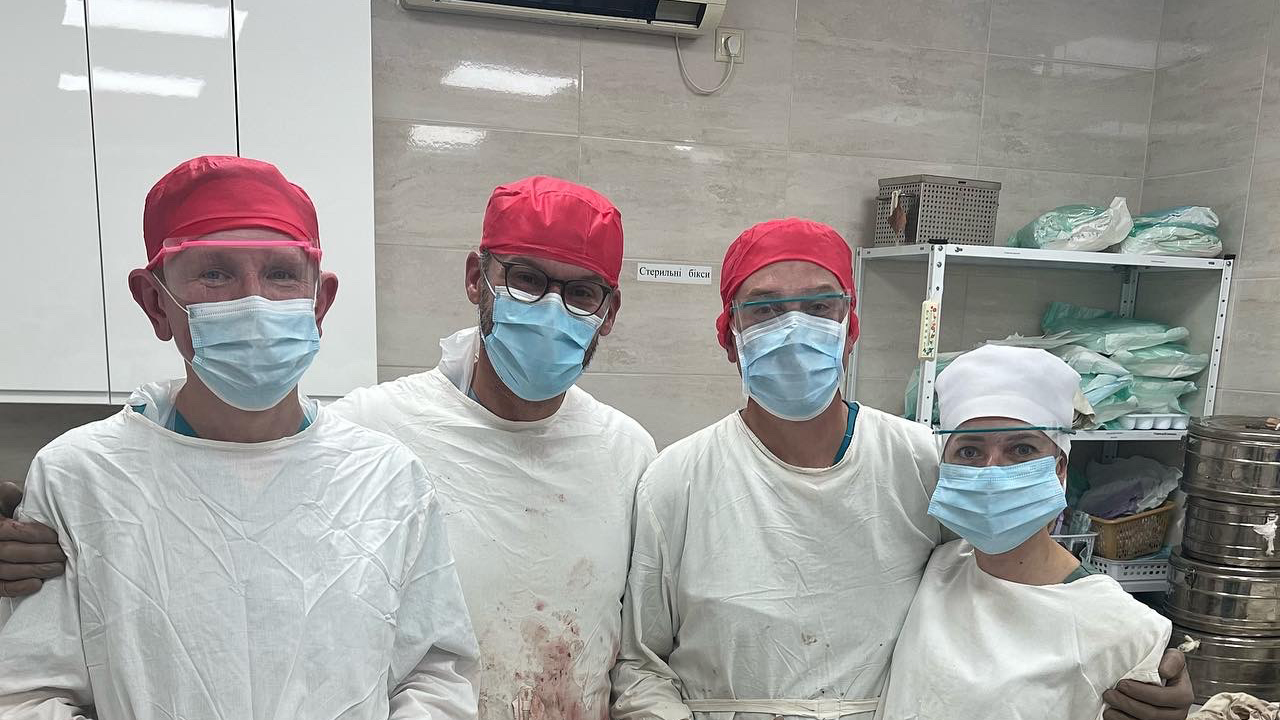
Dr. Anthony Papp is the Medical Director for the BC Professional Firefighters’ Burn Unit at VGH. He leads the Provincial Burn Program with responsibilities in teaching and research in addition to his clinical patient care. He is also the plastic surgeon responsible for the Spinal Cord Impairment Wound Clinic and Complex Wound Clinic at VGH. He is a Clinical Professor of Plastic Surgery at University of British Columbia.
Global Surgery Lab
Dr. Emilie Joos is a trauma surgeon at VGH. Her work at the hospital puts her in front of a wide variety of patient injuries from falls, accidents, stab wounds and gunshots. And no matter how complex, damaged, or impacted her patients are, Dr. Joos has the skill and expertise to care for nearly any issue.
A strong believer in sharing local expertise to help rural and global communities, Dr. Joos helped launch the Global Surgery Lab (GSL). The Lab includes an interdisciplinary, inclusive, and diverse group of experts who aim to improve knowledge of and access to surgical care in underserved communities through innovative, anti-colonial, and equitable educational platforms and research initiatives.
“Worldwide, five billion people do not have access to surgery, and the gap is the widest in sub-Saharan Africa,” says Dr. Joos. “Most countries in sub-Saharan Africa also suffer from a lack of trained surgical providers, and from a lack of surgical training programs. We call these regions ‘medical deserts’. This is why we first focused our efforts on South Sudan, a country of 10 million people, and less than 15 surgeons.”
Dr. Joos and the GSL team utilize modern technology to train physicians across the world—digitally. Educational resources and training modules to help upskill and certify non-specialized physicians, who then go on to provide surgical care in their communities. All they need is Internet access.
These same educational and training resources can also be used to improve care in BC’s rural communities.
“Most surgeons are concentrated in urban areas,” says Dr. Joos. “Interestingly, we found that family physicians with surgical skills were key in the delivery of surgical care in several of these communities, and we have since been working closely with this group to support their educational needs. Ultimately, recruiting, retaining, and maintaining surgical competencies in this group of physicians can significantly improve access to safe surgical care for rural and Indigenous populations in BC.”
Dr. Emilie Joos
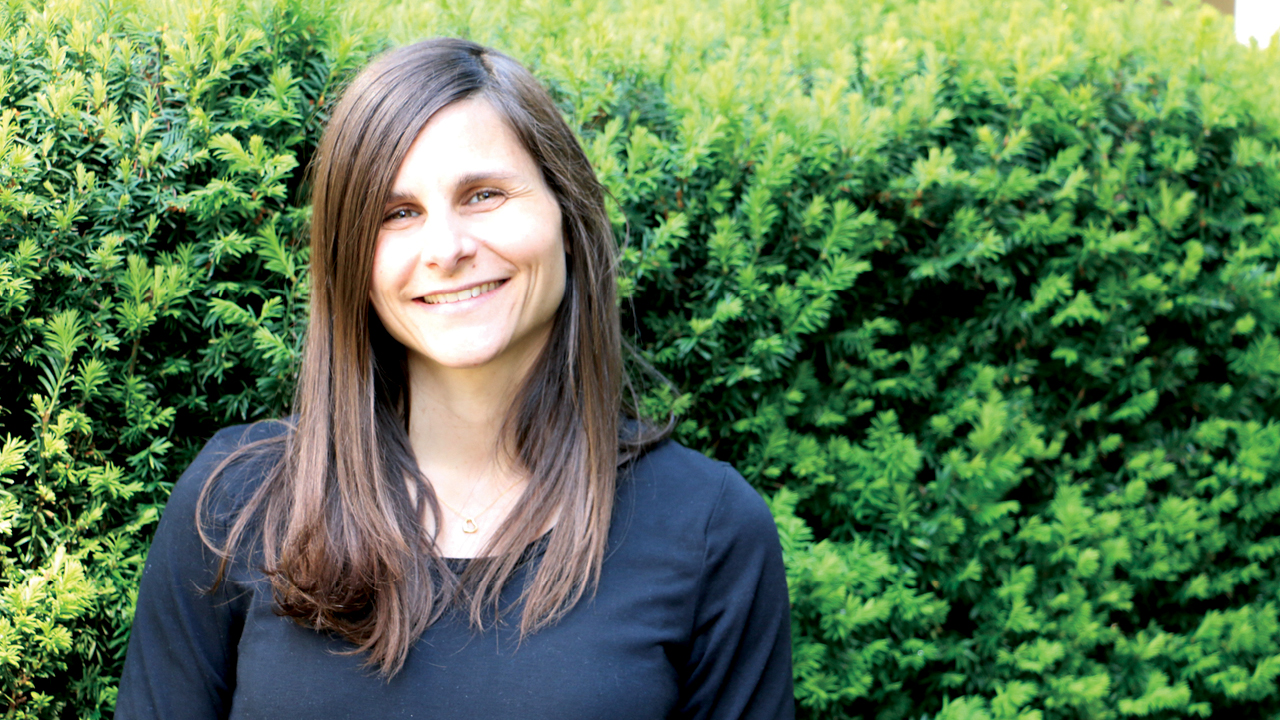
Dr. Emilie Joos is a trauma surgeon at VGH. She is also the Co-Director of the Global Surgery Lab, Associate Medical Director of the Branch for Global Surgical Care, and the Program Director for UBC Trauma and ACS Fellowship Program.
Global impact, local benefits
These are only a few of the many local clinician-scientists, surgeons, and physicians who are globally-recognized experts in their fields. They provide world-class care here in Vancouver for the people of BC, but their work has global impact. Through research, improving medical practice and knowledge-sharing, their work saves and improves lives. It is thanks to donor-funded early-stage research, Chairs, and Fellowships that we continue to attract world-class medical and research talent.
Thank you for your critical support. Together, we are creating world-class health care right here in British Columbia.
Share this:
